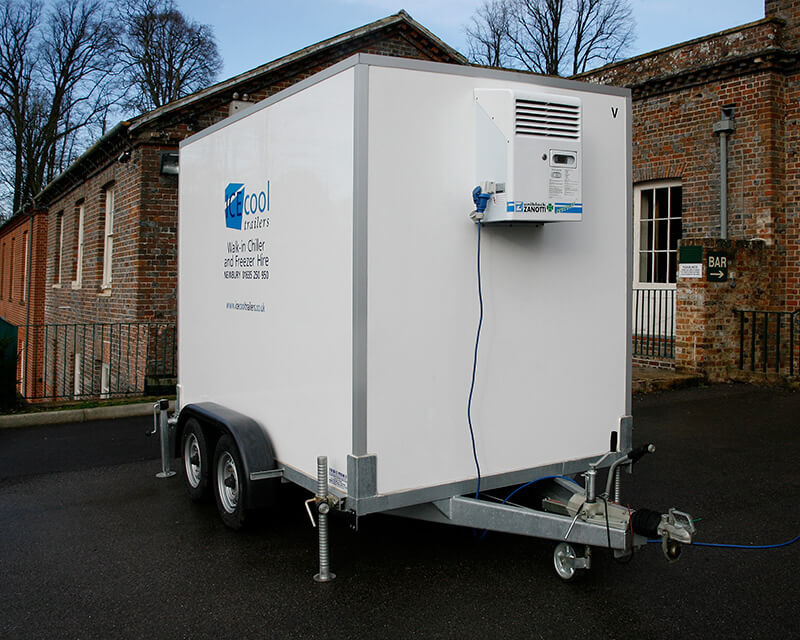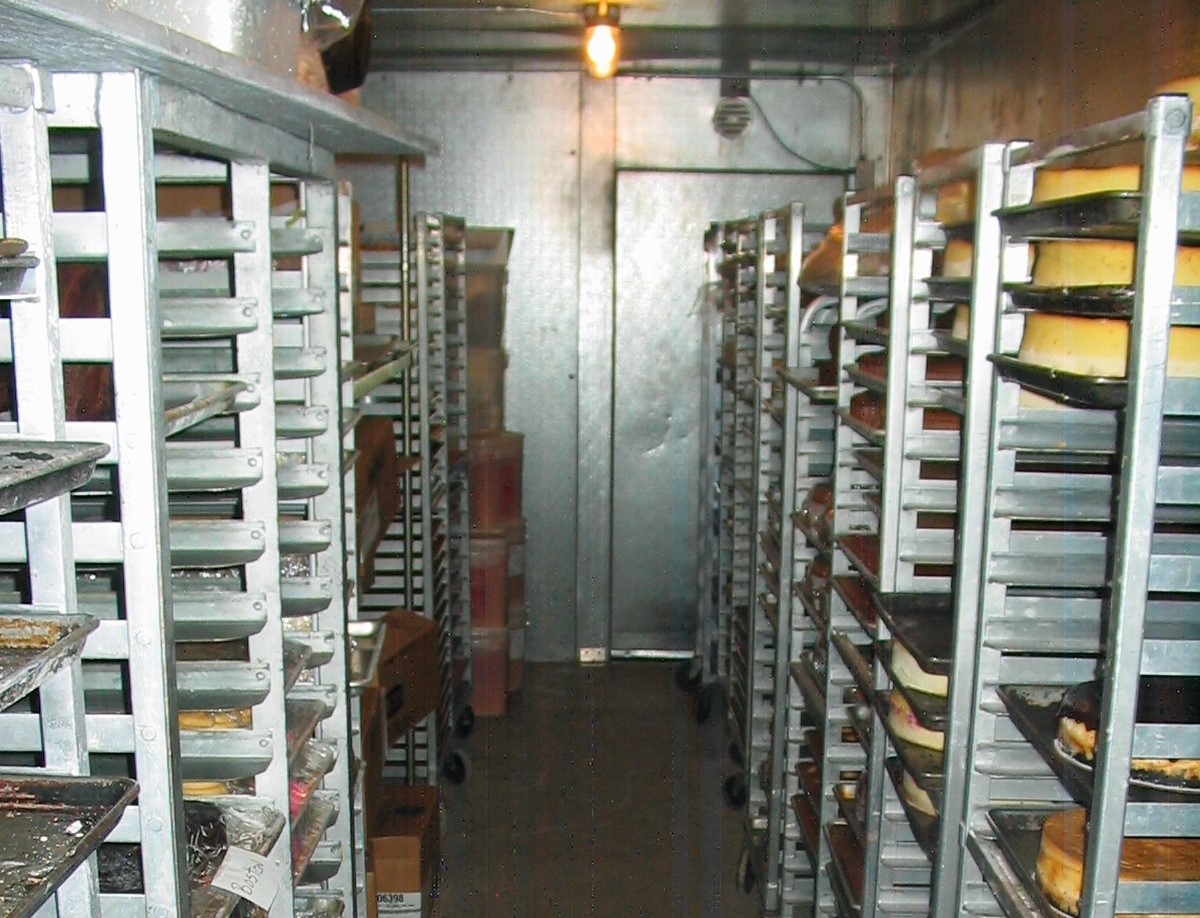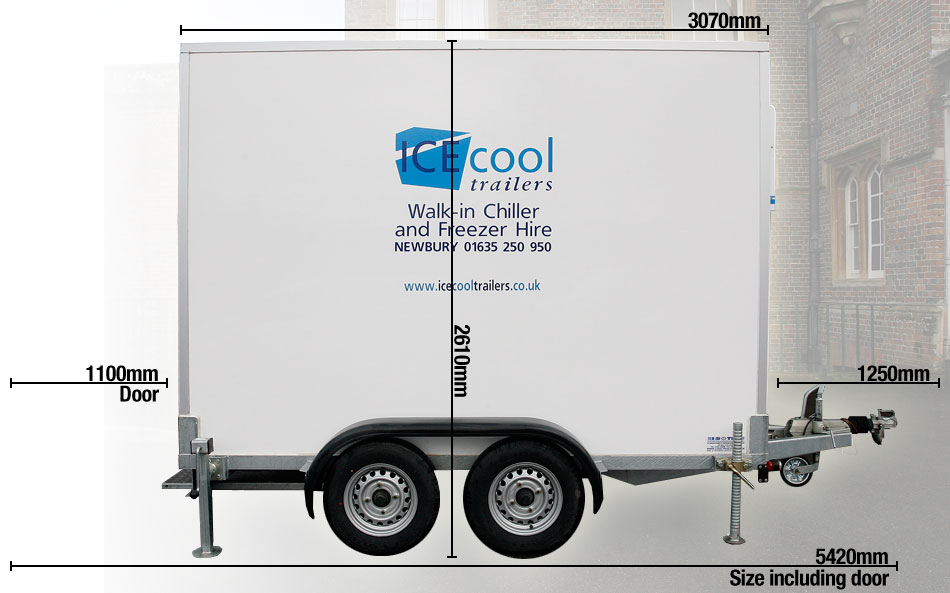Which items are not allowed to be stored in a cold room?
Cold rooms can be a great way to maximise on storage space in your bar or restaurant, or simplify an outdoor catering event that you're hosting for a client. But while cold rooms are highly convenient and easy to use, there are certain items that should never be stored in them.
In this blog post, we're going to go over a number of items that shouldn't be placed in your cold room - and what it can be used for instead. Let's take a look!
What is a cold room?
A cold room is a type of storage space that has been designed to keep items chilled at temperatures below freezing. Cold rooms are typically used in food service or catering industries to store refrigerated and frozen goods, such as meats and dairy products, but can equally be used to store drinks, cosmetics, and even certain medical supplies.
What is cold room hire?
Cold room hire - or freezer room hire - is a service that allows customers to rent a cold room for a certain period of time, whether it be for an event or to expand on current storage in a pub, hotel, or restaurant. This service is perfect for those who need extra storage space for their business or event, and don't want the long-term commitment that comes with purchasing one.
What can't be stored in a cold room?
If we're being honest, the number of things that you can store in a cold room massively outweighs what you can't; in fact, there are only a small number of items that might not be optimal for cold room storage:
Dairy products
In some cases, dairy products aren't ideal for cold room storage; this is because the cold temperatures can cause things like milk and yoghurt to curdle once they're removed from the cold room. If you're not a fan of lumpy milk in your tea, keep the dairy products in your regular fridge!
Fruits and vegetables
Although fruits and vegetables can generally be stored in temperatures as low as 0°C, they may suffer from a loss of flavour and texture if kept for too long in a cold room. If you're using them for catering purposes, it's best to keep them in the regular fridge or pantry until they're needed. This is especially true for exotic and tropical fruit, as well as fruit with a high water content; the cold temperature of the cold room will cause the water in the fruit to thaw, making the fruit lose its texture and taste, and become rather unpleasant to eat.
Potatoes
While potatoes technically count as a vegetable, we;re going to mention them on their own too; potatoes can quickly spoil and turn to mush if stored in a cold room, as the high water content makes them bloated and tasteless. Instead, keep them in a dark, dry place like the pantry or cupboard - this will help to preserve their texture and flavour for longer.
Eggs in their shells
Eggs are best kept in the refrigerator, and should never be stored in a cold room. This is because their shells can become brittle and crack when exposed to temperatures below 0°C, leading to spoilage or contamination.
Bread products
It's not a good idea to keep bread items in a cold room - not only can they end up losing their fluffy texture due to the cold temperatures, but they could also end up getting soggy if stored next to other frozen items covered in condensation.
Strong-smelling ingredients
This is a bit of a catch-all term, but strong-smelling ingredients like garlic, basic, and onions can all be detrimental to other items stored in your cold room, especially if your cold room is on the smaller side. Store these items separately to avoid any cross-contamination of flavours and aromas.
What should be stored in a cold room?
Now that we know what shouldn't be stored in a cold room, let's look at what should be. Cold rooms are ideal for storing items that require very low temperatures; some of the most common items you'll see stored here include:
Meats
One of the most popular uses for a cold room is to store meats, such as beef, pork and poultry. The lower temperature helps to prevent the growth of harmful bacteria, meaning that the meat can stay fresher for longer.
Frozen foods
Of course, frozen items are ideally suited to a cold room; from pre-prepared meals to comforting desserts like ice cream, you'll be able to store large amounts of frozen food with ease, making it much easier to serve up a delicious meal.
Drinks
If you're running a bar or restaurant, cold rooms can also be used to store drinks such as beer and wine at the correct temperature. Not only will you never run low on your customers' favourite beer or wine, but you'll also ensure that they're served fresh and crisp from the fridge - just as they're supposed to!



